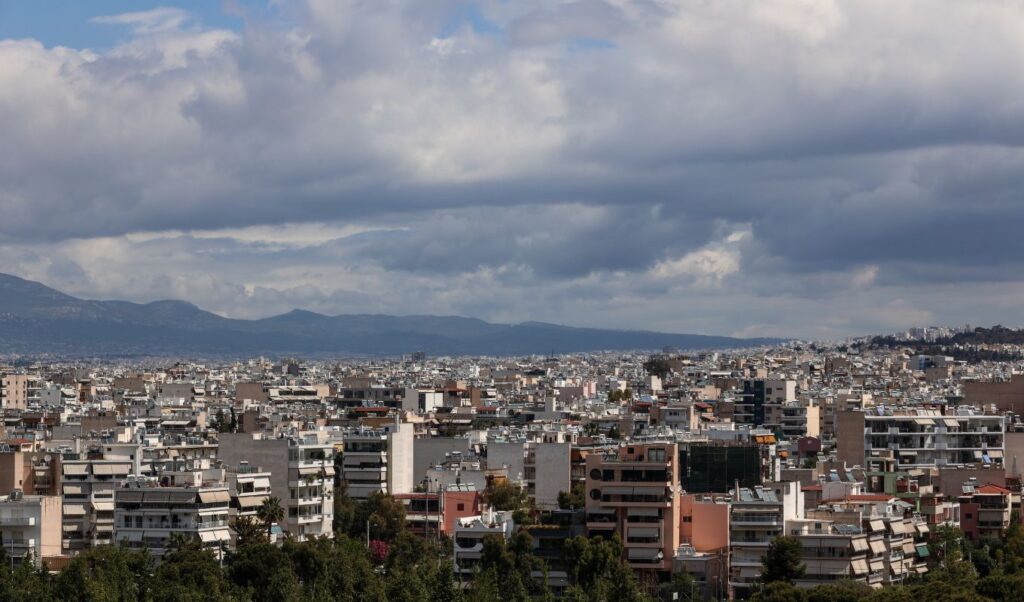A new era is beginning for the short-term rental market in Greece as Law 5170/2025 came into effect on Wednesday, October 1st, establishing strict terms and conditions for properties offered through this method.
Tourism Minister Olga Kefalogianni, presenting the new regulatory framework recently, emphasized that it is clear-cut, setting rules so that competition operates fairly for everyone and ensures improvement in the quality of services provided. It establishes clear rules for quality criteria and legality, taking into account the increase in this specific activity which forms part of the tourism offering. For this reason, the government practically recognizes the need to ensure a healthy competitive environment in the hospitality sector. The aim is to ease the pressure exerted by increased travel flows on certain destinations, while contributing to healthy economic and social development of destinations, promoting balanced accommodation supply for both hospitality and housing for residents, workers, and others.
The minister expressed her confidence that the new regulations contribute to achieving goals for quality and sustainable development of Greek tourism, which continues to record historically high performance, as data so far for 2025 indicate it will be another positive year. “Already in the first seven months of the year, tourism receipts increased by 12.5% compared to the corresponding period of 2024. Meanwhile, incoming tourist traffic nationwide also showed an increase compared to last year’s record year. What’s important, however, is that the dynamic expansion of tourism activity during off-peak months, shoulder and winter months, is maintained, which is a basic pursuit of our strategy,” Ms. Kefalogianni stated.
Strict controls and sanctions in the short-term rental market
The new regulatory framework provides for compliance checks by the Ministry of Tourism and AADE (Independent Authority for Public Revenue), as well as sanctions and fines corresponding to those in force for tourist accommodations. The Ministry of Tourism through AADE has already sent electronic notifications to all registered property managers who have a Property Registry Number (AMA), while a relevant circular has been issued explaining the specifications, which will similarly be sent via automated message from AADE.
In this context, from October 1st, accommodations that do not constitute primary use properties according to urban planning regulations are deleted from AADE’s electronic files, specifically the Short-Term Accommodation Property Registry. Consequently, they lose their Property Registry Number (AMA) and AADE will notify electronic rental platforms with which it has signed cooperation and information exchange memoranda, such as Airbnb. Due to the strict framework that has been activated, it is estimated that 5%-10% of accommodations are immediately removed from the market.
Additionally, by the end of the year, decisions are expected on which areas of the country – beyond the first three districts of Athens – will prohibit the provision of new short-term rental properties, as well as what other incentives and disincentives will be established to return properties to the long-term rental market.
According to the basic points of the new legislative framework, short-term rental properties are now required to meet minimum specifications including: Being primary use spaces according to the New Building Code and having natural lighting, ventilation and air conditioning; having civil liability insurance covering potential damages or accidents as well as an electrician’s declaration and pest control certificate; having an installer electrician’s declaration, fire extinguishers and smoke detectors, circuit breakers or anti-electrocution relays and escape route signage; and having pest control and disinfection certificates, first aid kit with supplies, as well as a guide with emergency telephone numbers.
Short-term rentals reach historic records
Meanwhile, Greece’s short-term rental market continues its explosive growth, recording records in number of accommodations and available beds. According to INSETE data, the number of available short-term rental accommodations, Airbnb-type, shows continued growth during January-August 2025, reaching a record in May with 236,000 accommodations, which was broken again in June with 242,000 and in July with 246,000 accommodations, the highest value recorded from January 2019 to date. The number of accommodations in August reached 247,000, recording a new historic high and consolidating the strong upward trajectory of the summer period.
Regarding available short-term rental beds, the third quarter began with July recording a new record of 1,078,236 beds, increased by +57,000 compared to July 2024. The upward trend continued in August, with the number of available beds reaching 1,081,481. This represents a new historic high, underlining the steady strengthening of short-term rental dynamics at the peak of the summer period.
The increased supply of short-term rental accommodations appears proportional to the increase in visitors, as occupancy levels remained at high levels, following a steadily upward trajectory. June recorded 40% occupancy, the same percentage as 2024, July saw the rate rise to 51%, remaining at the same levels as last year, while in August the rate was 58%, compared to 59% in August 2024. Despite this small decline, occupancy levels remain high, confirming steady demand during the summer period.
The average length of stay in short-term rental accommodations in the first quarter of 2025 showed generalized decline compared to the corresponding period of 2024, while in the second quarter it recorded stabilization in April and mild recovery in subsequent months, partially reversing the first quarter’s decline.
The third quarter began with stability in July, when average length of stay was 4.1 overnight stays, the same as July 2024. August recorded a new increase, with average length of stay reaching 4.2 overnight stays, up +2.4% compared to 4.1 in August 2024.
INSETE data shows that visitors to short-term rental accommodations were mainly foreign, covering over 90% of demand. Indicatively, in May and June foreign travelers represented 92% of total demand, in June 91%, while in August the percentage was 89%. The May performance is the second highest value recorded for the 2019-2025 period, after the 93% recorded in September in both 2023 and 2024. Historically, a similar percentage had been recorded once more, in June 2022.
ANA-MPA




